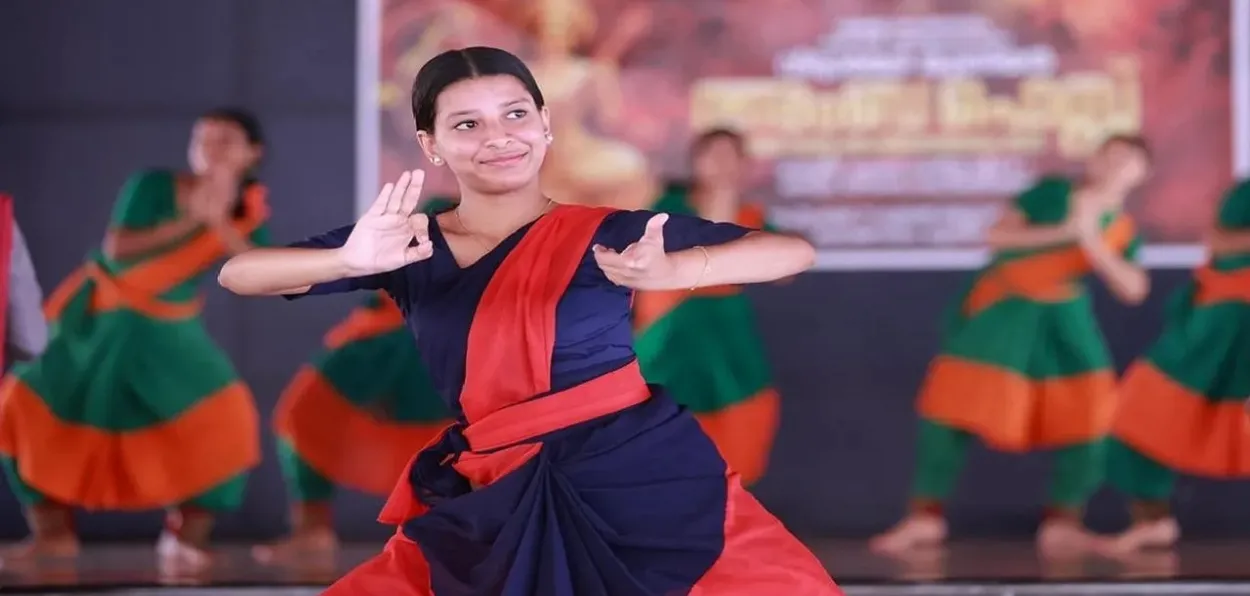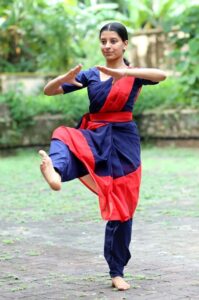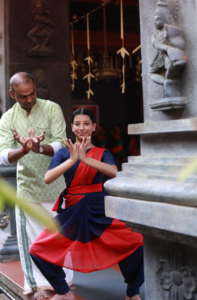
Onika Maheshwari/New Delhi
Sixteen-year-old Sabri broke barriers with beauty and devotion as she became Kerala’s first Muslim Kathakali artist in 95-year history of Kerala Kalamandalam, a deemed University of Art and culture.
Sabri played Lord Krishna in her first public performance on the stage of the prestigious Kerala Kalamandal, a deemed university for Art and Culture.
Sabri described her performance on the Vijayadashami as the fulfilment of a long-cherished desire. She said, "It was an unforgettable experience. I wasn't scared; the costume felt a little heavy, but once I got on stage, everything felt natural. Dance is my passion."
Her father, Nazim Ammas, a photographer, told the media, "This is a moment of immense pride and joy for our family. Sabari has fulfilled a dream she had since childhood."

Founded in 1930 by poets Vallathol Narayana Menon and Mukundaraja, Kerala Kalamandalam is the state's premier classical arts centre, having for decades elevated traditional dance forms like Kathakali, Mohiniyattam, and Koodiyattam. It is located in the village of Cheruthuruthy, within the Thrissur District of Kerala, India, on the banks of the Bharathapuzha river
This is the first time that a Muslim student has been taught Kathakali and allowed to perform on stage.
Sabari was admitted to the institute due to the intervention of the renowned Kathakali Guru Kalamandalam Gopi, who insisted that a girl from the Muslim community be included in the tradition.
Gopi taught her the first Kathakali postures, after which Sabari trained for three years under the guidance of Kalamandalam Anil Kumar.
Anil Kumar said, "Sabri learns with great concentration and dedication. Her performance reflected that dedication. She performed beautifully in her arangetram (maiden performance)."
Sabri performed for about 40 minutes on Thursday night as Krishna Vesham Purappadu. This is the opening scene of Kathakali, where the audience gets their first glimpse of Lord Krishna. Wearing blue face makeup and a heavy costume, Sabari entered the stage to the beat of the drums and chenda, receiving a standing ovation from the audience.
Her father said it took several hours to prepare for the performance, putting on makeup and costumes. When Sabari took the stage at 8 p.m., history was made—it was the first time a non-Hindu girl had performed Kathakali on the Kerala Kalamandalam stage.

Before Sabri, Kerala Kalamandalam has produced many renowned artists, including Kalamandalam John, a Christian, and the renowned Muslim Kathakali singer Kalamandalam Hyder Ali. Hyder Ali breathed new life into Kathakali music with his soulful voice and set an example of dedication to art that transcends religious boundaries. Sabari's performance carries forward that tradition—where art has no religion, only devotion and beauty.
Nazim explains that Sabri was interested in the colours and gestures of Kathakali since childhood. She developed a passion for the art form when she accompanied her father on photography trips to cultural events. When her father asked her if she would like to learn Kathakali, Sabari readily agreed.
In 2021, Kerala Kalamandalam opened its doors to female students for the first time. Nizam found a circular announcing that Kerala Kalamandalam would open its doors to girls. However, Sabri was only in class 6, while admissions began from class 8.
To bridge the gap, Nizam arranged preliminary training for Sabri with a local dance instructor. She practised for six months, but the pandemic forced a pause. After the lockdown, she resumed lessons and, by 2023, was ready to apply for class 8 at the institute.
Admission to Kalamandalam is competitive, with many applicants turned away for technical reasons. In Sabri’s case, her age was initially cited as a reason for rejection.
Sabri was in Grade 6 at the time. Two years later, in 2023, she applied and, with the support of Guru Kalamandalam Gopi, was admitted.
ALSO READ: Karan Khan: The King Khan of Chhattisgarhi Cinema
Today, Sabri is among the third batch of students at Kerala Kalamandalam, learning the intricate lessons of Kathakali. Her achievement is not only a personal triumph but also sends the message of the universality of art.
